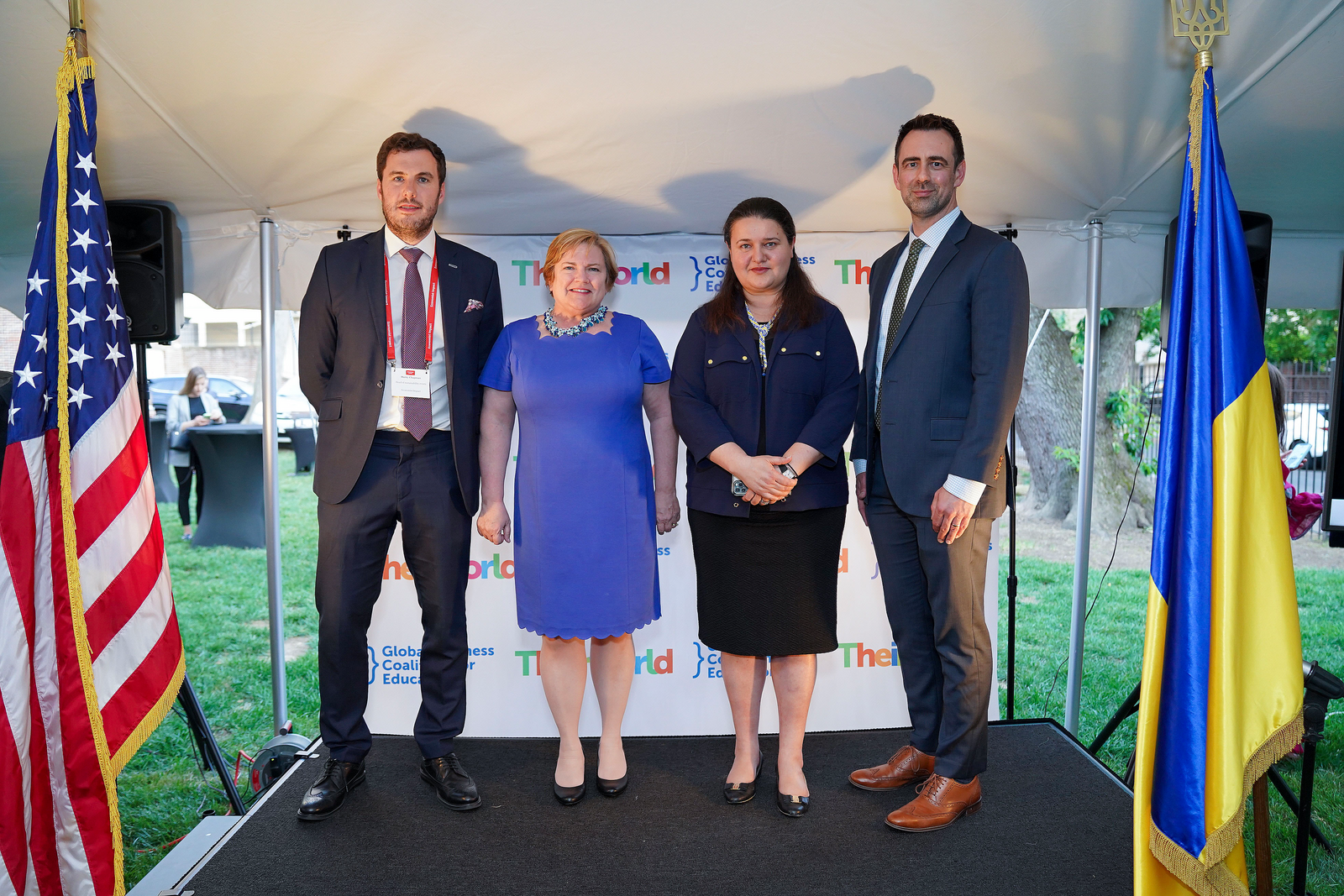
Invest in impact: the business case for global education

By Justin van Fleet, CEO of the Global Business Coalition for Education.
Global businesses generally understand they must invest in ‘doing good’ to help build brand reputation, strengthen customer loyalty and boost stakeholder satisfaction. But when it comes to selecting a cause to support, could they make more effective funding choices that optimize both positive impact and business benefits?
Research shows that businesses worldwide tend to invest in health and climate initiatives at rates significantly higher than education. In fact, one study found that US Fortune 500 companies invested 16 times more resources into global health than global education.
Furthermore, corporate giving programs tend to be small, short-term, one-off investments that fail to deliver either meaningful change or help build business reputation.
At the Global Business Coalition for Education, we believe that any effort to improve our world should start with education as its foundation. Better education helps solve a myriad of social and economic challenges, ranging from economic growth and employability to better health and awareness of critical environmental issues.
These challenges also directly affect a business’s ability to thrive and be successful in communities and markets around the world. By seeking expert advice, and collaborating with the right partners, investing in education initiatives can deliver both genuine social impact and measurable business outcomes – keeping all stakeholders happy.
Making the case for corporate investment
Through rigorous research, we’ve identified many corporate challenges that can be addressed by funding relevant education initiatives. From building an economically viable market to recruiting workplace-ready staff, education can deliver tangible value in a variety of ways.
Without drastic intervention, by 2030, more than half of young people worldwide won’t have the skills needed for jobs. In the U.S. right now, one in ten – approximately 4 million young Americans – are not in school or working. Meanwhile, companies are struggling to find the next generation of employees with the right skills for employment. The rise of artificial intelligence will only worsen this problem, predicted to affect up to 40% of jobs.
Taking steps now to help nurture future talent will ensure more young people will be workplace-ready when they join your company. For example, research shows that just $1 invested by a ‘typical’ local company in India into education can return $53 in value to the employer when a young person enters the workforce.
Disrupted or under-resourced education particularly harms the prospects of girls and people with disabilities, making it harder for businesses to recruit a diverse and inclusive workforce. The failure to educate girls alone costs countries between $15 trillion and $30 trillion in lost lifetime productivity and earnings.
And if young people overall cannot earn a good salary and lack career prospects, then they will remain impoverished – a scenario that not only harms local communities but also impedes a business’ ability to grow. Business growth requires expansion into new and developing regions, where success ultimately depends on a stable operating environment. In regions where there is tension and disruption, education acts as a stabilizing force and helps minimize risk.
Finding a warm reception in new territories, willing partners, and access to government help depends hugely on your business reputation. A track record of alignment with education initiatives will be a powerful influence on how your business and personal values are perceived; it demonstrates your belief in making positive societal contributions that make a real difference for a country’s citizens.
It is also a strong catalyst for attracting talent. Young people want to work for businesses with a genuine commitment to positive impact. Recent research among nearly 10,000 global professionals showed more than two-thirds of workers in the UK, France, Germany and Ireland, and 87% in the US, felt it important to work for companies that align with their values.
Finally, with COP 30 only months away, business minds will also focus on corporate commitments to help tackle sustainability and carbon emissions. Research shows that closing the education financing gap in low- and lower-middle income countries could reduce emissions by 51.48 gigatons by 2050. This is equivalent to five times the annual emissions of advanced economies.
More broadly, education provides the basic, technical, and managerial skills necessary to innovate and develop green industries, transforming economies and food systems, and reducing environmental destruction.
Look to an experienced partner to navigate complex networks
Many organizations have good intentions but are unclear about what steps to take to ensure their participation in education programs is both meaningful and will deliver the measurable reports that budget-holders want to see.
Involvement in education is a complex space that often needs buy-in at the most senior government and regulatory levels, as well as vetted partners on the ground. Businesses come to GBC-Education because they need a trusted broker who knows how to build partnerships across government and beyond. This is particularly valuable for businesses operating in new markets.
Partnering is hard work, but that’s our expertise and just one of the benefits of joining a global coalition of more than 150 businesses, all focused on achieving the same goal. Knowing how to guide your business to work effectively with governments, international organizations, local community organizations and other businesses is our bread and butter.
We understand the nuances and how to engage with various partners, which is vital for any social investment to have successful momentum and protect your brand from accusations of short-termism.
Our programs are set up with clear KPIs that can be understood by C-suite decision-makers and shareholders in any organization. We also help identify and bring to life the stories that can make a persuasive impression on stakeholders.

(L-R) Harry Chapman, Head of Sustainability Events-Economics Impact, Amy Burke, Head of Global Policy and Strategy, HP,, Oksana Markarova, Ambassador of Ukraine to USA, Justin Van Fleet President Theirworld, Executive Director Global Business Coalition for Education Event held for The Economist’s 3rd annual Sustainability Week, co-hosted by GBC-Education and Ukraine House in May 2023.
One example is our work with HP and Microsoft on Digital Equity for Ukraine; a program that sought to urgently help Ukrainian children continue their education despite the disruption of war.
The challenging logistics of delivering devices into a country suffering wartime deprivation, and into neighboring territories where Ukrainians had fled, needed careful planning and collaboration.
Within three months, we’d established a partnership that included the Ukraine First Lady’s charity, the Olena Zelenska Foundation, and saw us delivering $30 million worth of devices and accompanying software to 74,000 Ukrainian children and teachers.
GBC Education was able to streamline the logistics… and do so in ways that ‘moved the needle’ on digital equity in the middle of a warzone
HP representative speaking in the RAND case study: Encouraging Strategic Investments in Global Education.
There are real opportunities for you to invest in education across the world, from early childhood to workforce development.
Explore the global landscape for investing in education with part one of our latest report: The Business Case for Global Education.
Alternatively, you can contact us directly via info@gbc-education.org.
Next resource

